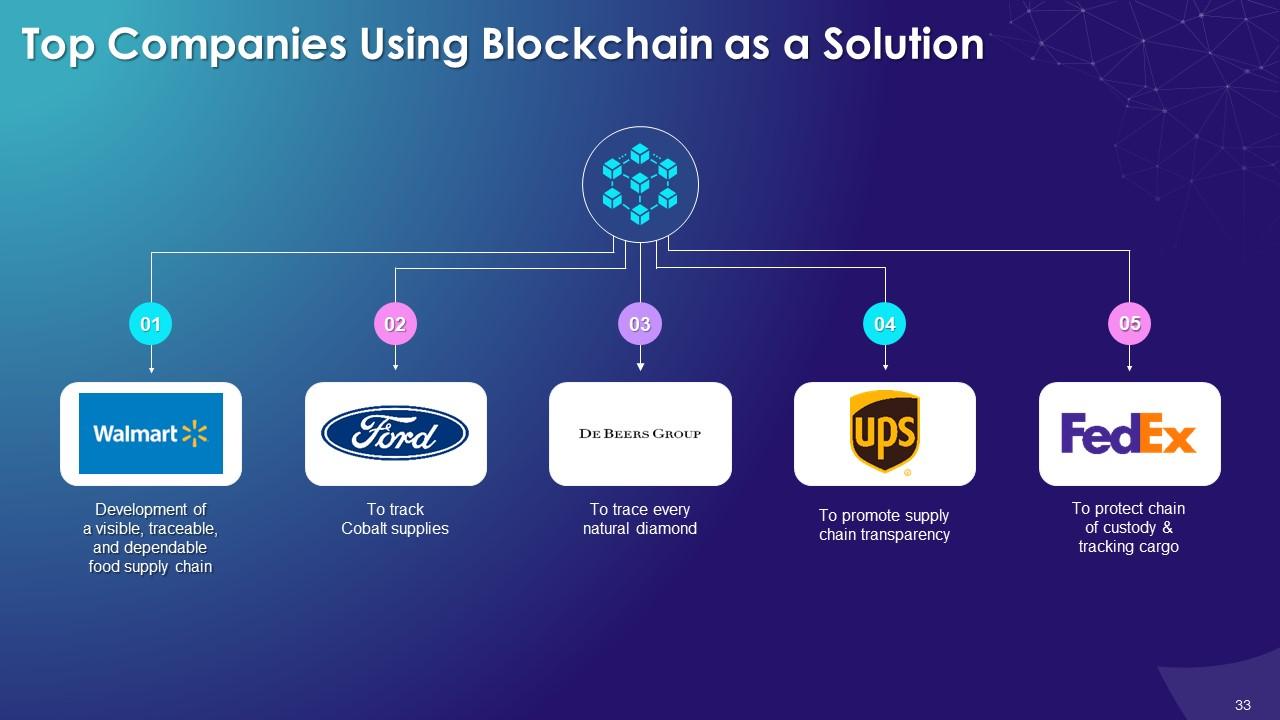
Leveraging Blockchain for Futuristic Transportation Hubs

Developing transportation hubs using blockchain technology
In today's rapidly advancing world, the need for efficient transportation systems has become more critical than ever. Whether it's for commuting to work, traveling across cities, or shipping goods across continents, there is a constant demand for a reliable and seamless transportation experience. However, traditional transportation systems often face challenges such as congestion, inefficiency, and lack of transparency. It is here that blockchain technology emerges as a promising solution, offering immense potential to revolutionize the way we develop transportation hubs.So, what exactly is blockchain technology? Essentially, it is a decentralized digital ledger that allows for the secure and transparent recording of transactions across multiple computers. Unlike traditional centralized systems, blockchain operates on a peer-to-peer network, making it virtually impossible for any single entity to control or manipulate the data. This technology has gained significant attention and popularity due to its ability to enhance security, streamline processes, and create trust amongst participants.When it comes to transportation hubs, blockchain technology can provide a myriad of benefits.
Let's dive into some of the most significant advantages:
1. Enhanced Security: Security is a critical concern in the transportation industry, and blockchain technology can help alleviate this issue. By utilizing advanced cryptographic algorithms, blockchain ensures that data stored within the system is tamper-proof and cannot be altered without the consensus of the network participants. This means that sensitive information, such as personal data or shipment details, can be securely stored and transmitted, reducing the risk of data breaches or unauthorized access.
2. Streamlined Operations: Transportation hubs involve a complex network of various stakeholders, including commuters, drivers, freight forwarders, and authorities. Coordinating among these parties can often lead to delays, errors, and miscommunication. With blockchain, the entire process can be streamlined and automated through the use of smart contracts. These self-executing contracts enable automatic verification and execution of agreed-upon terms, cutting down on manual intervention and minimizing human errors.
3. Improved Transparency: Lack of transparency has long been a problem in the transportation industry, leading to mistrust between different players. Blockchain technology can address this issue by providing a transparent and immutable record of every transaction or movement within the transportation hub. This means that all participants, from passengers to regulatory authorities, can have access to real-time information about routes, schedules, fares, and even carbon emissions. This unprecedented level of transparency fosters trust and accountability, promoting a more efficient and reliable transportation system.
4. Seamless Integration: One of the most significant advantages of blockchain technology is its ability to seamlessly integrate with existing systems and technologies. Whether it's a legacy transportation management system, GPS tracking software, or even Internet of Things (IoT) devices, blockchain can serve as a secure and shared platform that facilitates interoperability. By connecting different stakeholders and enabling real-time data exchange, blockchain technology can create a truly connected transportation hub that optimizes resources and enhances overall efficiency.Now, you might be wondering, where are these blockchain-powered transportation hubs being developed?
Well, various cities around the world have recognized the potential of this technology and have started exploring its implementation. For instance, Dubai, known for its innovative initiatives, has launched the Dubai Blockchain Strategy, with the aim of becoming the world's first blockchain-powered government by 2020. Part of this ambitious plan includes developing blockchain-based transportation systems to create a seamless experience for both residents and visitors.In conclusion, the development of transportation hubs using blockchain technology holds immense promise for revolutionizing the way we move people and goods. The enhanced security, streamlined operations, improved transparency, and seamless integration offered by blockchain can optimize transportation systems, reducing congestion, increasing efficiency, and creating a more sustainable future. As cities and organizations continue to explore and embrace this innovative solution, we can look forward to a future where transportation becomes more than just a means of getting from point A to point B - it becomes an experience that is secure, efficient, and truly connected. Best crypto gambling sites
Enhancing Efficiency and Security: This subheading explores how blockchain technology can improve the efficiency and security of transportation hubs. It could discuss how blockchain can streamline processes such as ticketing, baggage handling, and security checks, reducing wait times and enhancing passenger experience. Additionally, it can address how blockchain's decentralized and immutable nature helps prevent fraud, enhance data privacy, and ensure secure transactions within transportation systems.
Transportation hubs are vital components of modern cities and countries, serving as the gateways for millions of people and goods to reach their intended destinations. However, the intricacies and complexities of managing these hubs often lead to inefficiency and security concerns. Thankfully, with the advent of blockchain technology, these challenges can be overcome, transforming transportation hubs into efficient, secure and seamless entities.One of the key areas where blockchain can revolutionize transportation hubs is in the realm of ticketing. Currently, ticketing systems rely on centralized databases, making them vulnerable to hacking and fraud.
This not only compromises the security of passengers' personal information but also leads to revenue loss for transportation hubs. By implementing blockchain technology, ticketing systems can become decentralized and tamper-proof. Every ticket transaction is recorded on the blockchain and can be easily verified, reducing the risk of fraudulent activities. Additionally, by eliminating intermediaries, ticketing processes can become faster, resulting in reduced wait times and an improved customer experience.Another aspect that can benefit from blockchain technology is baggage handling. Losing or misplacing luggage is a common concern for travelers, causing frustration and inconvenience. By utilizing blockchain, the entire journey of a bag can be tracked, from the moment it is checked in to its arrival at the destination. Each time a bag changes hands, the transaction is recorded on the blockchain, ensuring transparency and accountability. This not only minimizes the risk of losing baggage but also provides real-time updates to passengers, improving customer satisfaction.Security checks at transportation hubs are crucial for ensuring the safety of passengers and preventing unlawful activities.
However, the current centralized security systems often face challenges in terms of data privacy and accuracy. Blockchain technology can address these concerns by providing a decentralized platform where security-related data can be securely stored and accessed. The immutability of blockchain ensures that once data is recorded, it cannot be altered or manipulated, enhancing the integrity of security checks. Furthermore, by using smart contracts within the blockchain, verification processes can be automated, reducing human error and facilitating faster security screenings.Beyond improving efficiency, blockchain technology also offers robust security features that can fortify transportation hubs against various threats. The decentralized nature of blockchain makes it extremely difficult for hackers to breach the system, as there is no single point of vulnerability. Additionally, the encryption algorithms used in blockchain ensure that sensitive data remains private and protected. By leveraging blockchain, transportation hubs can safeguard passenger information, maintain the confidentiality of financial transactions, and significantly minimize the risk of cyberattacks.In conclusion, blockchain technology holds immense potential in transforming transportation hubs into seamlessly efficient and secure entities. By optimizing ticketing systems, enhancing baggage handling processes, and fortifying security checks, blockchain can revolutionize the way transportation hubs operate. This not only improves the overall passenger experience but also ensures the safety and privacy of individuals utilizing these hubs. As we embrace the era of digital innovations, integrating blockchain technology into transportation hubs is an imperative step towards a more sophisticated and secure future.
Facilitating Seamless Integration: This subheading delves into the potential of blockchain to facilitate seamless integration between different modes of transportation and service providers within transportation hubs. It can discuss how blockchain-enabled smart contracts and interoperable platforms can connect airlines, railways, ferries, taxis, ride-sharing services, and other transport providers, providing passengers with comprehensive, interconnected travel options and improving overall logistic operations.
Transportation hubs are bustling centers of activity, where travelers from all walks of life come together to embark on their journeys. Whether it's catching a flight, hopping on a train, or grabbing a taxi, the seamless integration between different modes of transportation and service providers is crucial for a smooth and efficient travel experience. And this is where blockchain technology comes into play, revolutionizing the way transportation hubs are developed and operated.Blockchain, the decentralized and immutable digital ledger, has already made waves in various industries, but its potential in the transportation sector is truly groundbreaking. By harnessing the power of blockchain-enabled smart contracts and interoperable platforms, transportation hubs can connect airlines, railways, ferries, taxis, ride-sharing services, and other transport providers like never before.Imagine a traveler landing at an airport, with a seamless transition from the plane to their next mode of transportation.
With blockchain, this becomes a reality. Smart contracts, which are self-executing agreements encoded on the blockchain, can automate ticketing and baggage handling processes. Passengers no longer need to collect physical tickets or worry about losing them. Their digital tickets are securely stored on the blockchain, allowing for easy and efficient validation at each step of their journey.But the benefits of blockchain integration in transportation hubs go beyond just ticketing. Interoperable platforms built on blockchain technology can facilitate real-time data exchange and communication between different service providers. This means that airlines can easily share flight delays or cancellations with taxi or ride-sharing services, ensuring that passengers have alternative options readily available. Similarly, railways can provide updates on train schedules to connecting transportation services, ensuring a seamless transition between different modes of travel.Furthermore, blockchain can enhance the overall logistics operations within transportation hubs. By recording and verifying every step of the supply chain process, from the origin of goods to their delivery, blockchain ensures transparency, efficiency, and trust. This not only reduces administrative overhead but also minimizes the risk of fraud or tampering.
Transportation hubs can leverage blockchain to optimize their inventory management, tracking the movement of goods in real-time and reducing the chances of misplaced or lost shipments.The development of transportation hubs using blockchain technology also opens up opportunities for innovation and collaboration. Startups and entrepreneurs can build decentralized applications (dApps) on these blockchain platforms, providing new services and solutions to passengers. For example, a startup could develop an app that combines flight and train schedules, providing travelers with real-time information on their multi-modal journeys. This not only enhances the passenger experience but also fosters a more vibrant and competitive ecosystem within transportation hubs.In summary, the potential of blockchain to facilitate seamless integration within transportation hubs is immense. By leveraging blockchain-enabled smart contracts and interoperable platforms, airlines, railways, ferries, taxis, ride-sharing services, and other transport providers can come together to offer passengers comprehensive, interconnected travel options. This not only improves the overall logistics operations but also enhances the passenger experience, making travel more convenient and efficient. So, get ready to wave goodbye to the hassle of navigating different modes of transportation within transportation hubs and say hello to a new era of seamless integration powered by blockchain technology.
HomeAVAILABILITY
BEDS | BATHS
2 BED | 2 BATH
2 BED | 2 BATH
1 BED | 1 BATH
2 BED | 2 BATH
2 BED | 2 BATH
2 BED | 2 BATH
1 BED | 1 BATH
2 BED | 2 BATH
1 BED | 1 BATH
2 BED | 2 BATH
3 BED | 2 BATH
3 BED | 2 BATH
2 BED | 2 BATH
2 BED | 2 BATH
PRICE
$1,350,000
$1,375,000
$795,000
$1,330,000
$1,400,000
$1,450,000
$825,000
$1,475,000
$850,000
$1,500,000
$1,995,000
$2,175,000
$1,500,000
$1,675,000
STATUS
IN CONTRACT
IN CONTRACT
IN CONTRACT
IN CONTRACT
IN CONTRACT
IN CONTRACT
IN CONTRACT
IN CONTRACT
IN CONTRACT
IN CONTRACT
IN CONTRACT
IN CONTRACT
IN CONTRACT
IN CONTRACT
Contact us for more information
All renderings are for illustrative purposes only. The complete offering terms are in an offering plan available from Sponsor. File No. CD15-0104. Sponsors: 160 West Street LLC. Located at 57 West 57th, 4th Floor, New York, New York 10019






